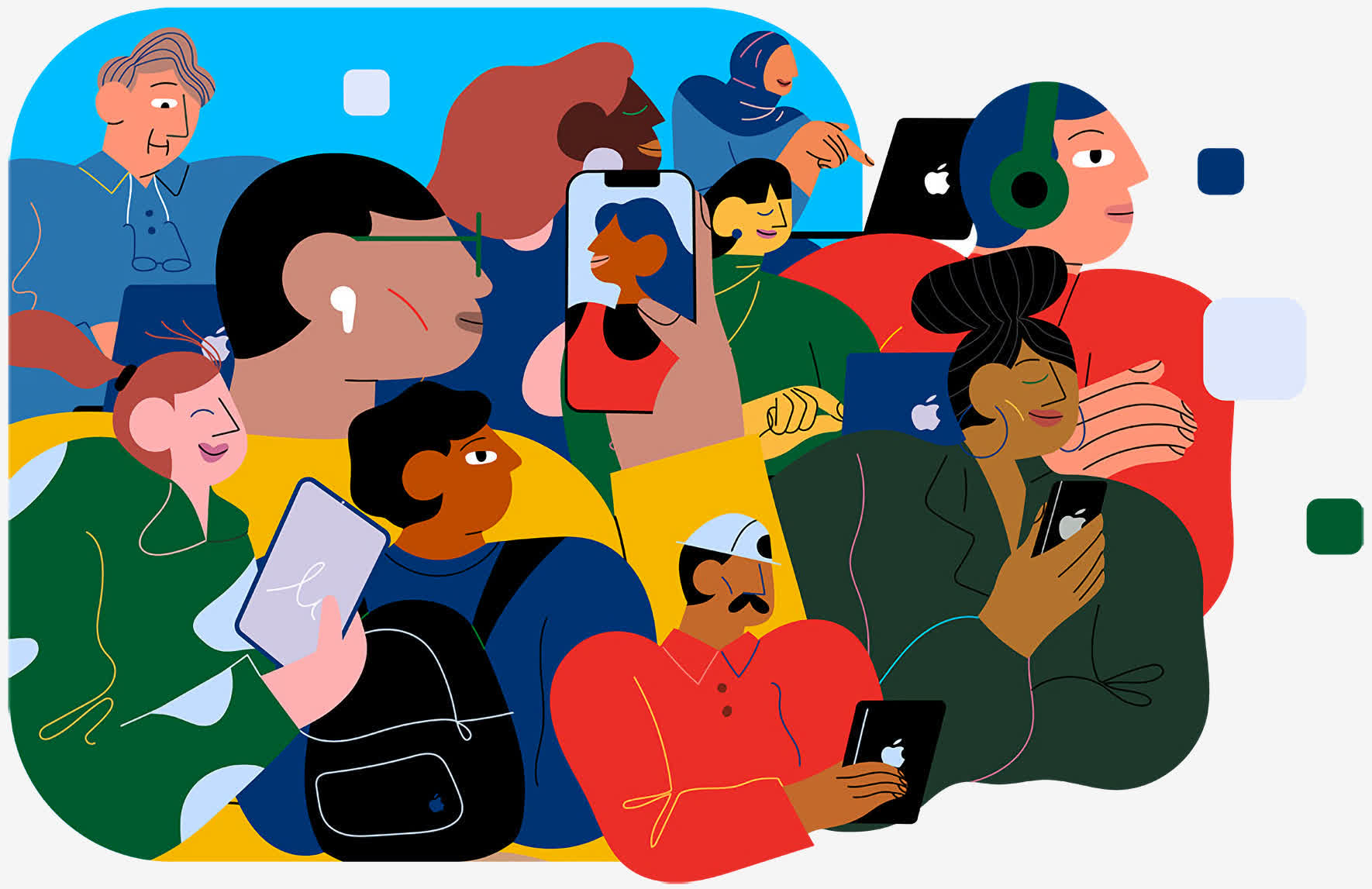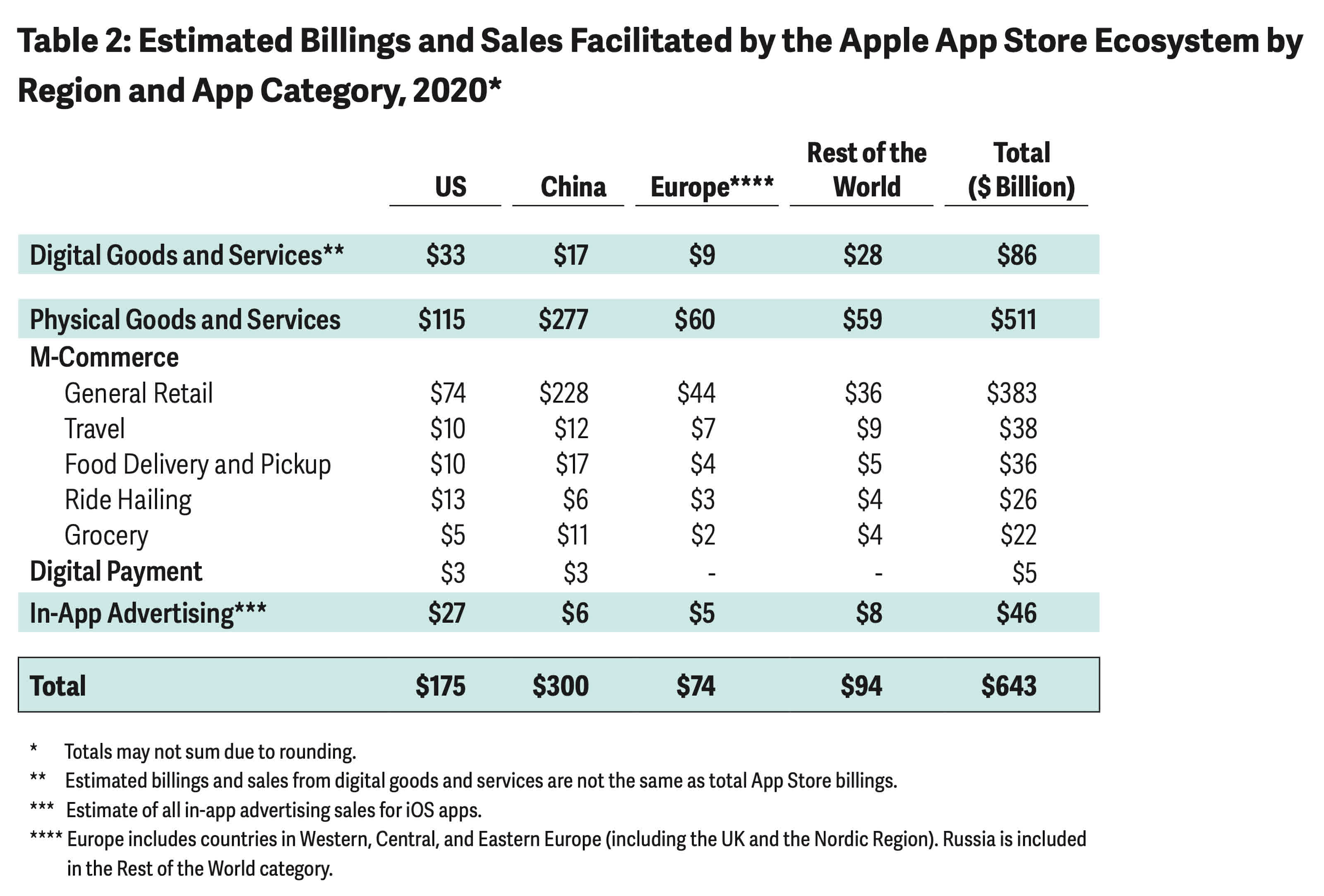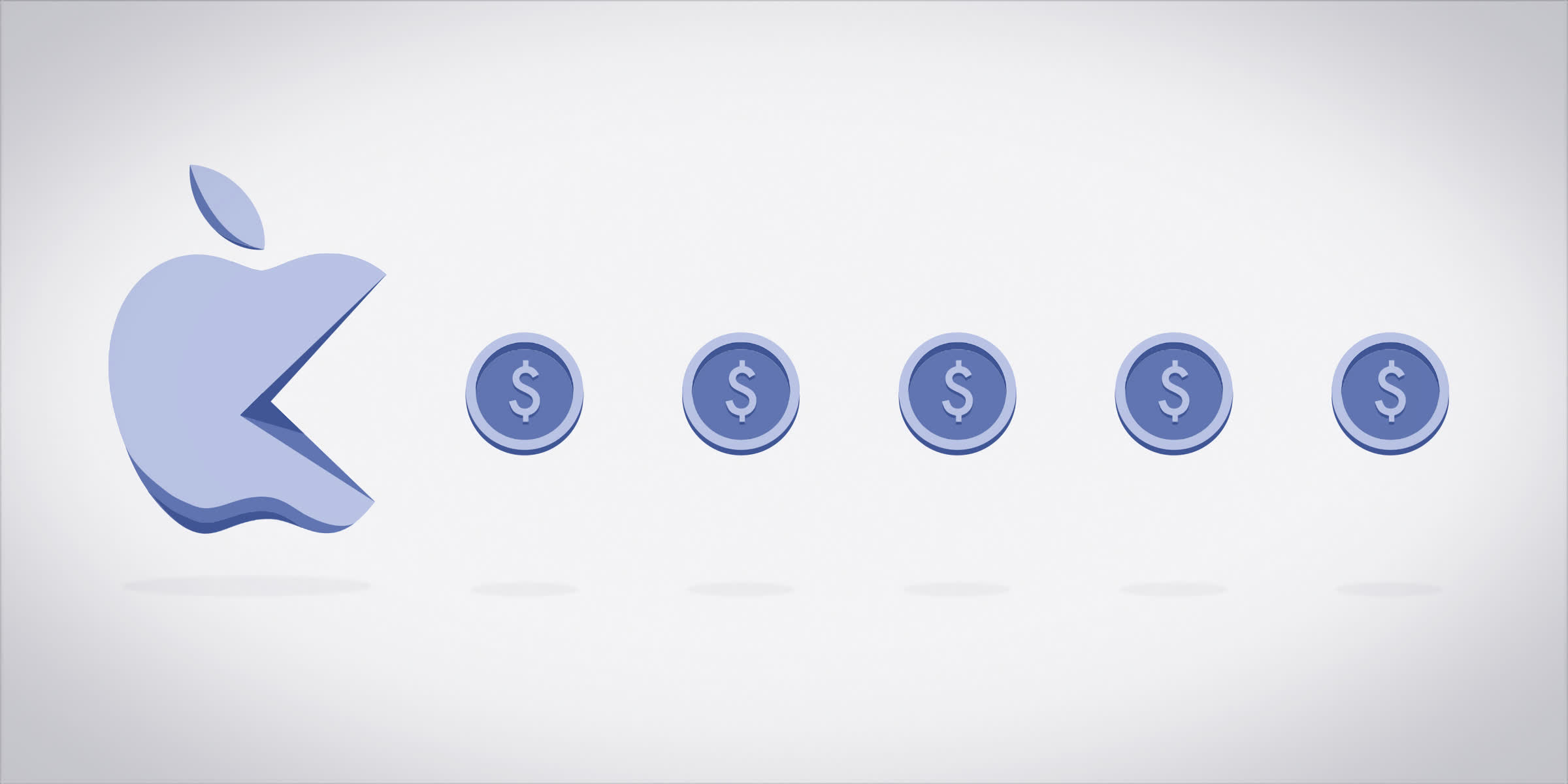The big picture: Apple says the App Store generated a whopping $643 billion in sales in 2020, most of which wasn’t subject to the 30 percent fee the company collects on app sales and in-app purchases. That may not help its case in court, but it does bring into focus how the company created an app-based economy that is likely to reach over $1 trillion per year.
This week Apple was happy to report the App Store generated no less than $643 billion in billings and sales during 2020, which marks a strong 24 percent year-over-year growth. Interestingly, 90 percent of that occurred outside the App Store, which confirms an earlier report that Apple grossed a little over $64 billion.
The Cupertino giant commissioned a study by economists at Analysis Group to look at the App Store from a global perspective, as well as how it’s performed through the pandemic. Among the findings is that the number of small developers has increased 40 percent in the last five years, while their earnings increased to the point where one in eight exceeded the one million a year cutoff for what is considered a small developer.

Apple says that one in four small developers has seen an average increase in their earnings of 25 percent per year between 2015 and 2020, and four in five have expanded to operate in more than 40 countries.
The company also touted the success of certain large developers in taking their companies public, with 40 app-based companies in the US and Europe achieving an aggregate valuation of $459 billion at the time of their IPO.
Also read: Snap CEO is happy to pay the 30% Apple tax, says Snapchat wouldn’t exist without the iPhone
A further 39 companies in these two regions have been acquired since 2011 for a total of more than $45 billion. Notable examples include Snapchat — which went public in 2017 at a $33 billion valuation, and Airbnb — which went public last year at a $47 billion valuation.
When looked at more closely, the $643 billion figure is a sum of estimates across several categories of apps and different monetization strategies.
The biggest category by far is that of physical goods and services, which generated $511 billion, while the smallest is that of digital payments, which only generated around $5 billion.
Digital goods and services saw a 41 percent boost, while sales in the travel and ride hailing categories contracted by more than 30 percent.

The key figure that Apple wants to highlight here is that most of this large sum of money was not subject to the 30 percent commission the company collects on apps and services sold through the App Store, and serves as proof of the enormous opportunity created for others. To that end, the company has also provided 250,000 APIs in 40 software development kits and launched various educational efforts that reached more than two million students and educators in the last year alone.
CEO Tim Cook said in a statement that “developers on the App Store prove every day that there is no more innovative, resilient or dynamic marketplace on earth than the app economy. […] The result isn’t just incredible apps for users: it’s jobs, it’s opportunity, and it’s untold innovation that will power global economies for many years to come.”

The timing of this study is interesting, as the Cupertino giant is currently embroiled in a legal battle with Epic Games over allegedly gatekeeping the App Store. A verdict is expected in August and is likely to get appealed, so we’re probably years away from a final decision on the matter.
The study may not help Apple’s case but it does show the company has created an app-based economy around the App Store that could reach $1 trillion by 2023 and $2 trillion by 2025, assuming the current rate of growth is maintained.
If you want the perspective of an iOS developer, check out Marco Arment’s (of Tumblr and Instapaper fame) blog post on the matter. Marco argues that Apple’s leadership likes to paint a picture where this large app-based economy owes its existence to the App Store, while failing to recognize that iOS has also benefited greatly from developers bringing high quality apps and services to the platform, which in turn has made iOS an attractive platform for consumers.
Source link





